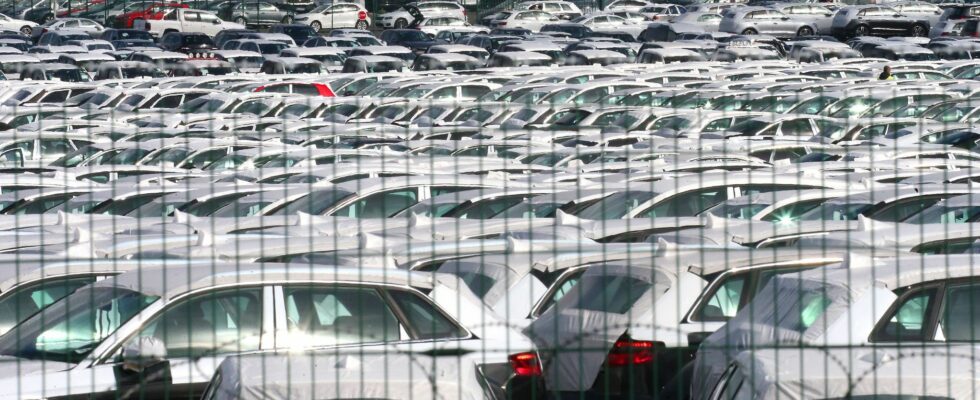It is a serious setback that is taking shape for the European Union, while the Member States must vote to ban the sale of cars with internal combustion engines in 2035 this Tuesday, March 7. In recent days, Germany, home to Volkswagen AG, the Mercedes-Benz Group and other major automakers, has announced that it no longer wants to greenlight the text, as long as a proposal on how synthetic fuels – also called e-fuel – could be used after this deadline was not put forward by the Commission.
These fuels, which have the same basic chemical structure as conventional fuels used in internal combustion engines, use electricity from renewable sources to separate hydrogen from water. The result is a liquid or gas with hydrocarbon chains similar to gasoline, diesel or methane, but climate neutral. Nor would they need any new logistics to operate – pipelines and gas station fueling networks would suffice. Problem: this technology is also very energy-intensive, and the combustion of electronic fuels in a combustion engine still produces pollutants, so the air in the city will not necessarily be cleaner.
save jobs
If Germany defends this technology, it is because it will allow it to extend the sale of some of its emblematic symbols, like the 911 sports car from Porsche. In addition, wider adoption of electric fuels could also help save jobs in its automotive industry, as the production of internal combustion engines requires more parts and therefore more workers than the production of electric motors. Germany is also supported in the EU by Italy, another major automaker, as well as Poland and Bulgaria. The four countries represent around 42% of the EU’s population, easily above the 35% threshold needed to block the legislation.
“We have always made it clear that the European Commission must present a proposal on how synthetic fuels could be used in combustion engines after 2035. […]. What is missing now is the fulfillment of this commitment,” German Transport Minister Volker Wissing (FDP, Liberals) recalled on Friday.
At the request of Rome and Berlin, the Twenty-Seven had indeed included in the text a possible green light in the future for alternative technologies, such as synthetic fuels, if these make it possible to achieve the objective of completely eliminating greenhouse gas emissions from vehicles. European Commission President Ursula von der Leyen is due to meet Chancellor Olaf Scholz on the sidelines of a German cabinet meeting on Sunday, where the issue of e-fuel is likely to be discussed.
